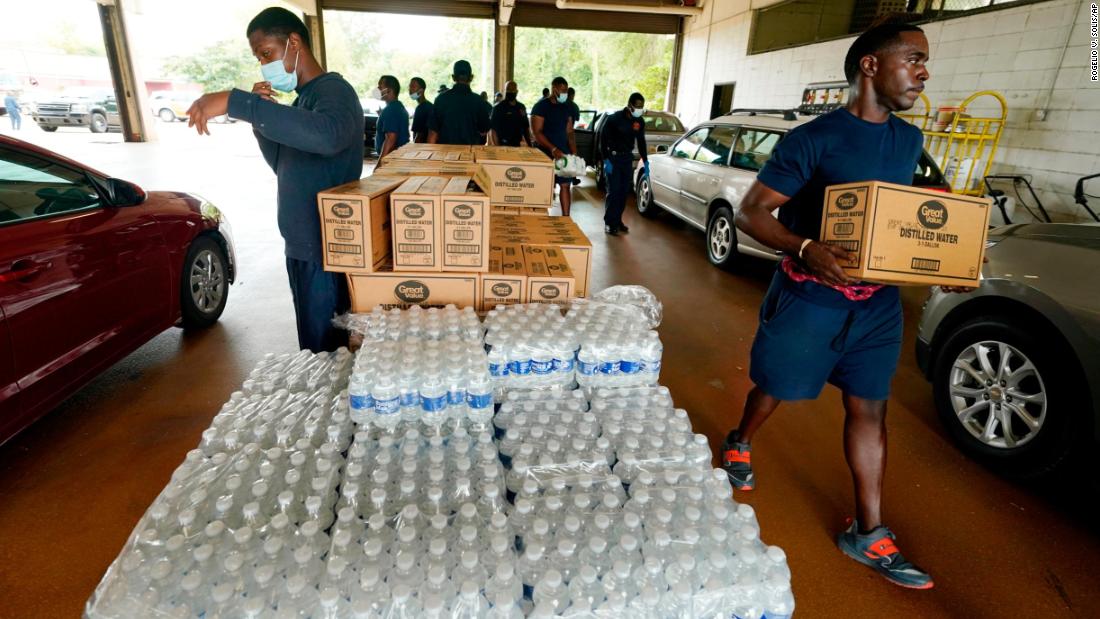

Flooding taxed the city’s frail water system, leaving many unable to flush toilets.
What’s more shocking is that this is becoming a routine occurrence in Jackson. Residents had already been under a boil-water notice since late July. It wasn’t the first time.
A visit from the EPA. Back in November, when the Environmental Protection Agency administrator Michael Regan visited Jackson to talk about water equity, he saw the city’s issues for himself.
“We have been actually lifting up our persistent water challenges for the better part of two years, crying out for any assistance that we could get,” Jackson Mayor Chokwe Antar Lumumba, a Democrat, said on CNN on Tuesday.
Jackson resident and Mississippi state Rep. Ronnie Crudup Jr. told CNN’s Alisyn Camerota on Tuesday that his family couldn’t boil water Monday night because there was nothing but air coming out of the faucets.
By Tuesday morning, discolored water was coming out of his faucets, which he could use to flush his toilets. But the discolored water is unsafe to drink.
“This is something that has been occurring for years, but sometimes it takes these catastrophes to make sure that this disaster comes to light,” he said.
“We will do everything in our power to restore water pressure and get water flowing back to the people of Jackson,” the state’s Republican Gov. Tate Reeves said Tuesday.
Help for crumbling infrastructure. The need to address the problem of crumbling infrastructure is something that has bipartisan agreement. Republicans and Democrats in Washington came together to pass the $1.2 trillion bipartisan infrastructure law last November.
Camerota asked Crudup Jr. whom he would blame for the situation.
“I’m not here to play the blame game right now. We’ve been passing this buck around for years. This thing has been decades in the making,” Crudup Jr. said. “Even the last two years, we’ve been dealing with things over and over again, and so I’m just glad right now that the governor has decided to go ahead and step up to the plate and help us out right now.”
A lot of people worry about drinking water. Clean, safe drinking water is a top environmental concern of Americans.
But people are not as worried as they used to be — 72% said they were worried a great deal about pollution back in 2000. Democrats tend to be more worried than Republicans.
That communities of color are more likely to be affected by water issues is a well-documented and sad phenomenon.
